Kundera Unbearable Lightness Quotes & Sayings
Enjoy reading and share 10 famous quotes about Kundera Unbearable Lightness with everyone.
Top Kundera Unbearable Lightness Quotes
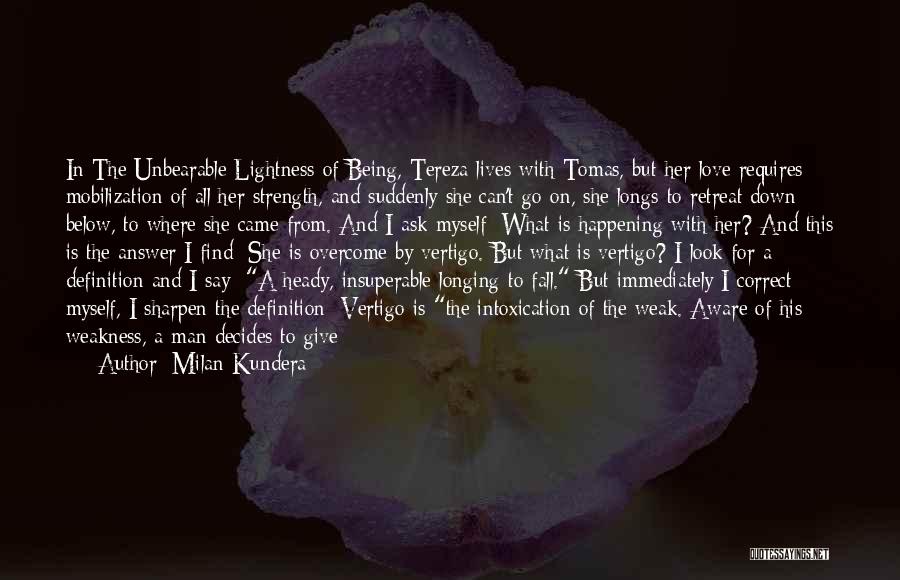
In The Unbearable Lightness of Being, Tereza lives with Tomas, but her love requires mobilization of all her strength, and suddenly she can't go on, she longs to retreat down below, to where she came from. And I ask myself: What is happening with her? And this is the answer I find: She is overcome by vertigo. But what is vertigo? I look for a definition and I say: "A heady, insuperable longing to fall." But immediately I correct myself, I sharpen the definition: Vertigo is "the intoxication of the weak. Aware of his weakness, a man decides to give in rather than stand up to it. He is drunk with weakness, wishes to grow even weaker, wishes to fall down in the middle of the main square in front of everybody, wishes to be down, lower than down. Vertigo is one of the keys to understanding Tereza — Milan Kundera

In the realm of totalitarian kitsch, all answers are given in advance and preclude any questions. — Milan Kundera

Every one of my novels could be entitled The Unbearable Lightness of Being or The Joke or Laughable Loves; the titles are interchangeable, they reflect the small number of themes that obsess me, define me, and unfortunately, restrict me. Beyond these themes, I have nothing else to say or write. — Milan Kundera
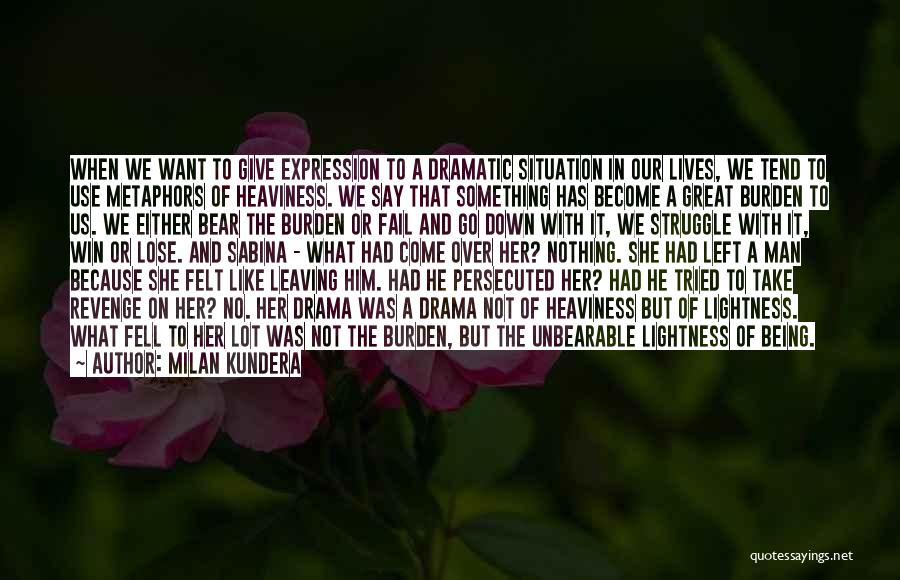
When we want to give expression to a dramatic situation in our lives, we tend to use metaphors of heaviness. We say that something has become a great burden to us. We either bear the burden or fail and go down with it, we struggle with it, win or lose. And Sabina - what had come over her? Nothing. She had left a man because she felt like leaving him. Had he persecuted her? Had he tried to take revenge on her? No. Her drama was a drama not of heaviness but of lightness. What fell to her lot was not the burden, but the unbearable lightness of being. — Milan Kundera

Anyone who starts doubting details will end by doubting life itself. — Milan Kundera
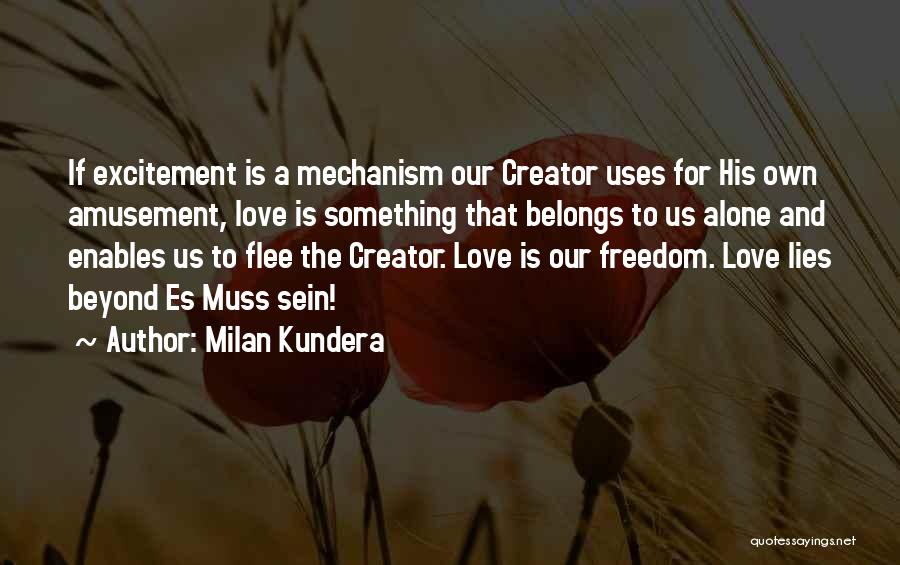
If excitement is a mechanism our Creator uses for His own amusement, love is something that belongs to us alone and enables us to flee the Creator. Love is our freedom. Love lies beyond Es Muss sein! — Milan Kundera
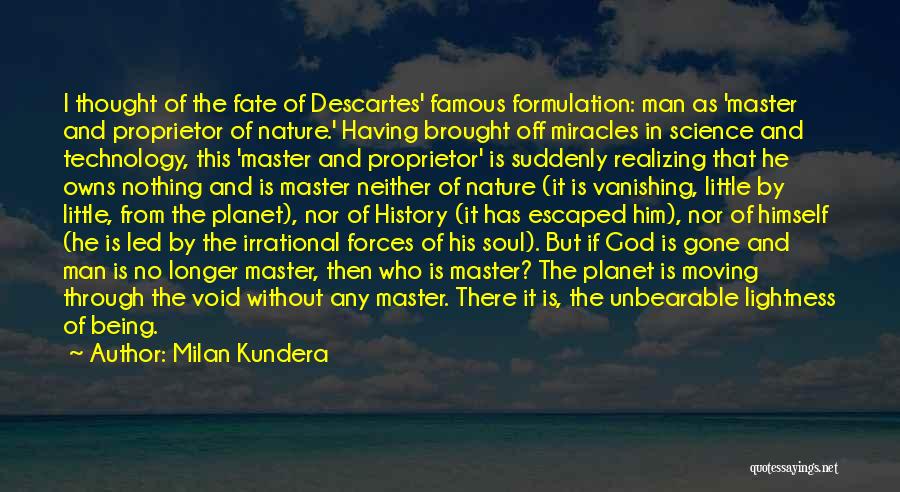
I thought of the fate of Descartes' famous formulation: man as 'master and proprietor of nature.' Having brought off miracles in science and technology, this 'master and proprietor' is suddenly realizing that he owns nothing and is master neither of nature (it is vanishing, little by little, from the planet), nor of History (it has escaped him), nor of himself (he is led by the irrational forces of his soul). But if God is gone and man is no longer master, then who is master? The planet is moving through the void without any master. There it is, the unbearable lightness of being. — Milan Kundera
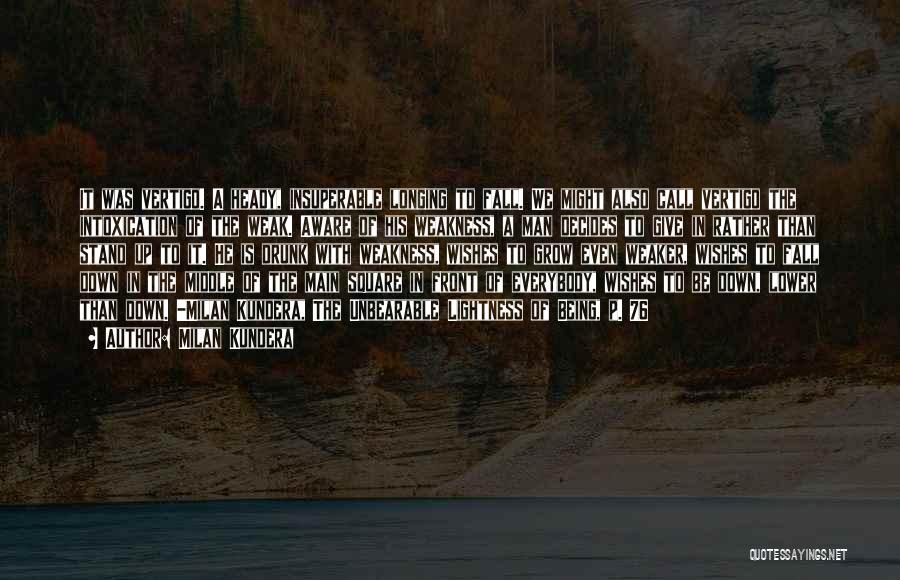
It was vertigo. A heady, insuperable longing to fall. We might also call vertigo the intoxication of the weak. Aware of his weakness, a man decides to give in rather than stand up to it. He is drunk with weakness, wishes to grow even weaker, wishes to fall down in the middle of the main square in front of everybody, wishes to be down, lower than down. -Milan Kundera, The Unbearable Lightness of Being, p. 76 — Milan Kundera







